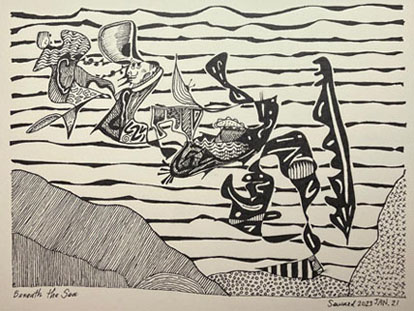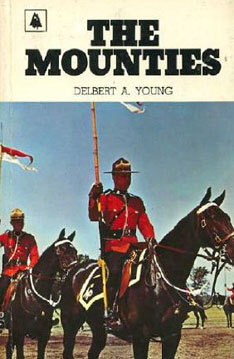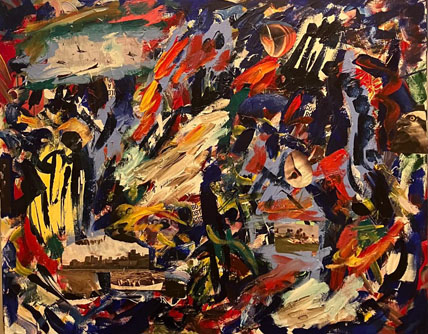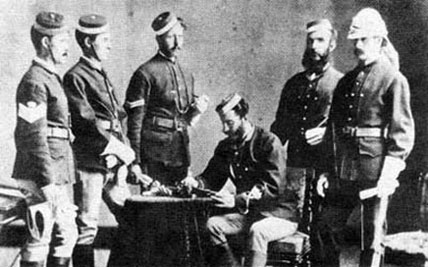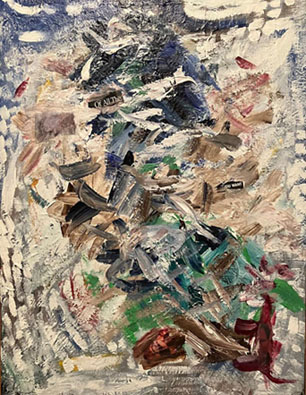Serious reform of the RCMP (in its 150th year) should begin by dropping “Royal” from the name (or just restoring the original “North West Mounted Police”)?
Jan 30th, 2023 | By Citizen X | Category: In BriefSPECIAL FROM CITIZEN X, BUCKHORN, ON. 30 JANUARY 2023. Yesterday CTV News writer Natasha O’Neill posted a piece headlined “As Canada’s RCMP marks 150th anniversary, a look at what it says needs to change.”
The piece began with : “As the RCMP marks a major milestone, questions linger over the legacy of Canada’s paramilitary police force, and how it fits into modern-day policing … In its 150 years, the Royal Canadian Mounted Police has grown from 300 employees to 30,000, and evolved from a northern policing agency into a country-wide organization.”
(1) “Questions swirling around the force” today are “dark and existential”
Some 27 days before Ms. O’Neill’s article Brent Patterson, from Peace Brigades International-Canada in Ottawa, had posted a piece headlined “As the RCMP prepares to celebrate its 150th anniversary this year, Indigenous land defenders call for it to be abolished.”
Brent Patterson began with : “Toronto Star journalist Allan Woods reports: ‘Days into 2023 — the Royal Canadian Mounted Police’s 150th year — the questions swirling around the force are dark and existential’ … Woods notes various controversies within the RCMP including that David Brown had said the RCMP is ‘horribly broken’ and questioned if ‘the fabled “paramilitary model” of leadership ingrained in RCMP culture was the best way to run a modern police force that was accountable to the federal government and to the public.’”
Allan Woods’s own piece in the Toronto Star, dated January 2, 2023, was headlined “Like her predecessors, Brenda Lucki hasn’t cleaned up the RCMP messes. Should she be blamed? … She’s the latest boss struggling to reform the troubled force. ‘This process essentially repeats about every five years, with little to show for it.’”
(Meanwhile, back on May 19, 2022, Travis Poland had posted some words on the Mounties’ own website, with the more or less official view. It was headlined “RCMP across the country preparing for 150th anniversary in 2023.” And it began with “The countdown is on for the RCMP’s 150th anniversary next year! … May 23, 2023 marks 150 years since a bill passed through Parliament … establishing the North-West Mounted Police, which would eventually become the RCMP … The occasion provides a chance to reflect on the RCMP’s past and its contribution to the story of Canada …”)
(2) The March West in the summer of 1874
All this prompted me to scan my bookshelves for a volume purchased many years ago now in a congenial Edmonton bookstore. It is simply called The Mounties. And it’s by Delbert A.Young (1907–1975) — an Alberta teacher, family farmer, carpenter, miner, and ultimately professional writer with a particular interest in heritage subjects and local history.
Young’s book was first published in 1968 and then again in a so-called mass-market paperback in 1973. It presents a somewhat rough and ready, upbeat and optimistic view of the Mounties’ first 100 years. A book of this sort from any but official sources is hard to imagine during the 150th anniversary year of the Royal Canadian Mounted Police. But it is not without interest.
In a way the real-life story of the Mounties does not start until 1874. As the current official history online explains : “Parliament passed an act that allowed for the creation of the North-West Mounted Police (NWMP) on May 23, 1873. Today, we consider this the official birthdate of the RCMP … But the Order-in-Council to establish the North-West Mounted Police wasn’t signed until August 30, 1873. This was in response to an attack on First Nations peoples in the Cypress Hills [in the old North-West Territories that is now Saskatchewan] by American whisky traders and wolf-hunters … The next summer, the North-West Mounted Police, now with 300 recruits, set out on the March West. Along the way it set up posts, now known as divisions, each with smaller outposts, now known as detachments. In these posts, the NWMP employed First Nations and Métis guides, scouts and interpreters.”
Delbert Young begins his book The Mounties with the July 8, 1874 departure of the (more or less) 300 recruits on the March West from Dufferin, Manitoba. Along with the policemen on horseback the March included “73 wagons and 114 Red River carts drawn by oxen” (and managed by Métis drivers).
(3) Dufferin, Manitoba in the first half of the 1870s
This drew my attention to Dufferin, Manitoba, somewhat south and west of Winnipeg, and I offer a few additional notes on this subject as at least a beginning of my personal homage to and critique of a legendary Canadian institution officially celebrating its 150th birthday this year. (And whose present-day quite serious reform I would like to see begin with dropping the “Royal” from its name. Or possibly with just restoring the original name of North West Mounted Police.” Canada is after all a country of the north and west globally!)
My excellent main source here is “Manitoba History: Dufferin: Then and Now” by the “Historic Resources Branch, Province of Manitoba” and published by the Manitoba Historical Society in the Spring of 1992. This begins with : “In 1874, when Northwest Mounted Police Inspector Francis Dickens arrived at Dufferin, an outpost along the west side of the Red River near the Manitoba-U.S. Border, he was angry and upset, first because he had arrived too late to take part in the original trek west, and second because he would have to remain at what he considered one of the most unpleasant places in the entire British Empire.”
The Historic Resources Branch authors go on to explain how “George A. French, the first commissioner of the North West Mounted Police, described the site, where he would assemble nearly 300 people in preparation for a march into Canada’s far west, as a ‘small shanty town surrounded by a few brothels and grog shops.’” And then : “In his memoirs, a young NWMP recruit described Dufferin in similarly unflattering terms. ‘Dufferin … was [he wrote] of small account … a Government warehouse, a Hudson’s Bay Company Store, two whiskey saloons and a few log shanties, inhabited by half-breeds …’” (Today of course we would say Métis not half-breeds. And the use of the latter term by the “young NWMP recruit” may say things about what is still wrong with RCMP culture, even if such bad language habits were common among the anglophone settlers and their descendants until all too recently.)
The Historic Resources Branch authors go on further to explain how Dufferin got its start in 1872, as a kind of headquarters camp established by the chief commissioner of the British North America Boundary Commission Survey, for the “approximately three hundred surveyors” defining the 49th parallel between the western parts of Canada and the United States. The authors note that the chief commissioner (a Captain Donald Cameron) built his own house on land claimed by a Métis family named Gosselin. And : “Although this parcel of land had been occupied by the Gosselin family since 1847, Cameron successfully patented these lots in 1874.”
(4) Possibly with just restoring the original name of “North West Mounted Police”
Finally, I can’t resist adding that the HRB authors also point out : “One can assume that the local population came to the site and some set up saloons and other businesses to serve the residents. Both Dr. Thomas Millmen, the assistant surgeon with the Boundary Commission, and Dr. John Kittson, chief surgeon for the NWMP, complained about the widespread problems of venereal disease associated with the many brothels surrounding the camp.”
Things of this sort also figure in the historic legacy of the RCMP that remains the source of so much controversy in the 2020 s. But the Mounties are just part of a wider and deeper legacy in Canada itself. For the RCMP to really change Canada has to really change as well.
And this seems to me worth remembering as I ponder the winter wonderland at the end of January 2023 up here in the rural Ontario that has the Ontario Provincial Police and not the RCMP as its regional version of (northern) North American policing culture. (As Danielle Smith’s Alberta is thinking it might do too, following Ontario’s and Quebec’s lead in spite of itself? And then there’s the unusual case of Newfoundland and Labrador, with both its own force and RCMP!)
Meanwhile, again, I think it would actually make sense for present-day quite serious reform of the RCMP to begin with dropping the “Royal” from its name. Or possibly with just restoring the original name of “North West Mounted Police” — Canada at large being a country of the north and west in the global village today.

